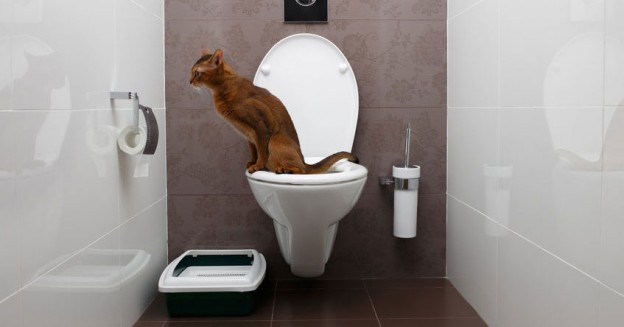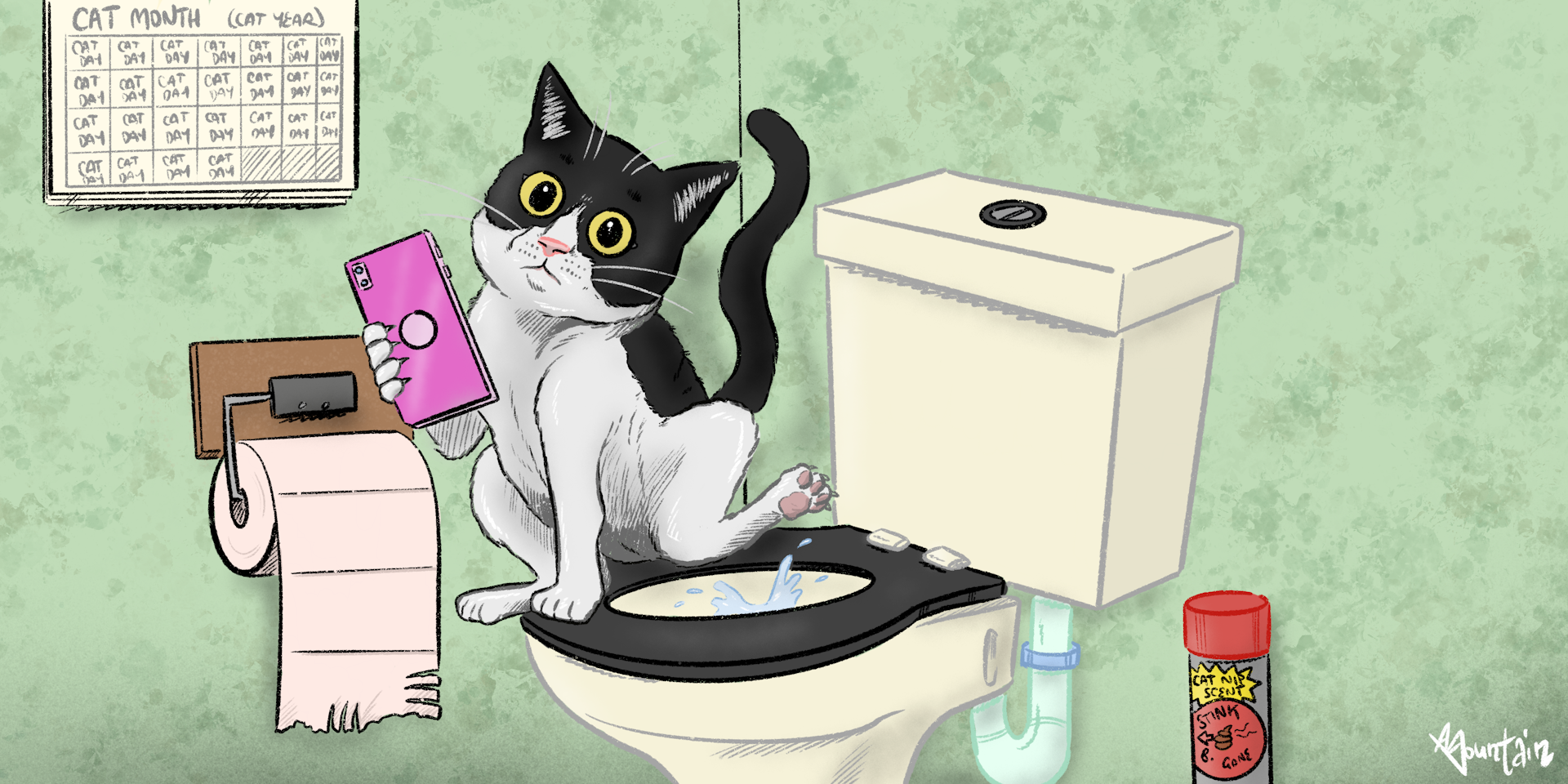Understanding the Risks of Flushing Animal Waste Down the Toilet
Understanding the Risks of Flushing Animal Waste Down the Toilet
Blog Article
Are you hunting for facts and techniques on 10 Things You Should Never Flush Down The Toilet?

When it pertains to throwing away waste, particularly animal waste, lots of people typically turn to the convenient choice of flushing it down the commode. Nevertheless, this apparently very easy remedy can have serious repercussions for the setting and public health. In this post, we'll explore why flushing pet waste down the bathroom is a negative concept and give alternate approaches for proper disposal.
Intro
Appropriate waste disposal is vital for preserving environmental sustainability and public health. While it might seem harmless to flush animal waste down the commode, it can lead to different problems, both for the atmosphere and human health.
Threats of flushing animal waste
Environmental effect
Flushing animal waste introduces hazardous bacteria and pathogens into waterways, which can adversely impact marine communities. These pathogens can pollute water resources and harm marine life, disrupting fragile communities.
Public health problems
Animal waste has unsafe bacteria such as E. coli and Salmonella, which can present significant health risks to human beings. Purging pet waste down the bathroom can pollute water supplies, causing the spread of diseases and infections.
Alternatives to flushing
As opposed to flushing animal waste down the commode, there are numerous alternate disposal approaches that are more environmentally friendly and sanitary.
Composting
Composting pet waste is an eco-friendly way to take care of it. By composting, organic matter is broken down right into nutrient-rich dirt, which can be made use of to fertilize gardens and plants.
Garbage dump disposal
Disposing of animal waste in a garbage dump is another choice. While not as eco-friendly as composting, it is a safer option to flushing, as it avoids the contamination of water sources.
Pet waste disposal systems
There are specialized animal garbage disposal systems available that safely and hygienically get rid of animal waste. These systems often make use of enzymes to break down waste and remove odors.
Steps to correct pet waste disposal
To ensure proper disposal of animal waste, follow these actions:
Scooping and getting waste
On a regular basis scoop and bag pet waste using naturally degradable bags. This avoids waste from contaminating the atmosphere.
Utilizing assigned waste containers
Dispose of bagged pet waste in marked waste bins, such as compost bins or landfill bins. Stay clear of flushing it down the bathroom in any way expenses.
Cleaning can and pet locations routinely
On a regular basis clean can and pet dog locations to stop the build-up of waste and bacteria. Usage pet-safe cleansing products to keep health.
Advantages of proper disposal approaches
Adopting correct disposal approaches for animal waste supplies numerous advantages:
Minimized environmental pollution
Proper disposal methods reduce the risk of environmental pollution, shielding waterways and ecosystems from contamination
Lessened risk of water contamination.
By staying clear of flushing pet waste down the commode, the danger of water contamination is significantly reduced, safeguarding public health.
Enhanced cleanliness and hygiene
Appropriate disposal methods promote better sanitation and health, developing a much safer environment for both humans and animals.
Conclusion
To conclude, flushing animal waste down the commode is harmful to the environment and public health. By embracing alternate disposal techniques and complying with proper waste administration practices, we can lessen the negative influence of animal waste and contribute to a cleaner, much healthier earth.
What To Do With Dog Poo – The Do's And Don'ts Of Disposing Of Faeces
Dog poo bins
Some councils provide dedicated dog waste bins in popular dog-walking areas that can take dog poo that has been bagged but you can legally dispose of dog waste in any public litter bin, as long as it is securely bagged. This also applies to your wheelie bin at home.
Do not flush
Water companies do not recommend flushing dog faeces down the toilet because certain parasites can survive the water processing treatment and are potentially harmful to humans. You should also never consider flushing dog poo that has been bagged down the toilet as the bags will not break down and instead create severe blockages in the sewage system.
In the woods
The Forestry Commission promotes a ‘stick and flick’ method for dealing with waste in the woods. This means finding a stick and using it to flick any poo from off the path so that it is out of the way of other walkers. You could also bury it as long as it is not in an area where there might be livestock.
Livestock
Parasites found in dog poo can be transmitted to livestock if they inadvertently eat infected faeces that has been left on grazing land. This could result in the death of sheep or abortion in cattle so you should always make sure you pick up your dog’s waste in fields where livestock could be present.

On a regular basis clean can and pet dog locations to stop the build-up of waste and bacteria. Usage pet-safe cleansing products to keep health.
Advantages of proper disposal approaches
Adopting correct disposal approaches for animal waste supplies numerous advantages:
Minimized environmental pollution
Proper disposal methods reduce the risk of environmental pollution, shielding waterways and ecosystems from contamination
Lessened risk of water contamination.
By staying clear of flushing pet waste down the commode, the danger of water contamination is significantly reduced, safeguarding public health.
Enhanced cleanliness and hygiene
Appropriate disposal methods promote better sanitation and health, developing a much safer environment for both humans and animals.
Conclusion
To conclude, flushing animal waste down the commode is harmful to the environment and public health. By embracing alternate disposal techniques and complying with proper waste administration practices, we can lessen the negative influence of animal waste and contribute to a cleaner, much healthier earth.
What To Do With Dog Poo – The Do's And Don'ts Of Disposing Of Faeces
Dog poo bins
Some councils provide dedicated dog waste bins in popular dog-walking areas that can take dog poo that has been bagged but you can legally dispose of dog waste in any public litter bin, as long as it is securely bagged. This also applies to your wheelie bin at home.
Do not flush
Water companies do not recommend flushing dog faeces down the toilet because certain parasites can survive the water processing treatment and are potentially harmful to humans. You should also never consider flushing dog poo that has been bagged down the toilet as the bags will not break down and instead create severe blockages in the sewage system.
In the woods
The Forestry Commission promotes a ‘stick and flick’ method for dealing with waste in the woods. This means finding a stick and using it to flick any poo from off the path so that it is out of the way of other walkers. You could also bury it as long as it is not in an area where there might be livestock.
Livestock
Parasites found in dog poo can be transmitted to livestock if they inadvertently eat infected faeces that has been left on grazing land. This could result in the death of sheep or abortion in cattle so you should always make sure you pick up your dog’s waste in fields where livestock could be present.

Do you appreciate more info about 10 Things You Should Never Flush Down The Toilet? Create a comment below. We'd be happy to listen to your opinion about this post. In hopes to see you back again soon. I beg you take the opportunity to distribute this entry if you appreciated it. I praise you for being here. Kindly visit our website back soon.
Book Report this page